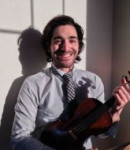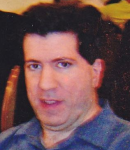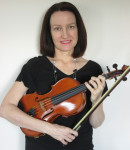Featured Violin Teachers In New Jersey

Nicholas D
Instruments: Violin
Most importantly, learning violin should be fun. In my lessons, my students will find a variety of rhythm games and activities. I am not just teaching violin, but music as a whole. I feel that music appreciation needs to be built into violin lessons. I will share pop and classical music with students, show them live performance videos, and encourage them to experiment with their own natural abilities. I am a big communicator when teaching beginning students. Read More

Lauren B
Instruments: Piano, Violin, Cello, Viola
I began teaching private music lessons about 10 years ago, but have been consistently teaching for the part six years. I welcome all ages and abilities. Read More

Vincent T
Instruments: Piano, Guitar, Violin, Bass Guitar, Organ, Synthesizer, Harmonica, Banjo, Mandolin
I have taught music since 1994, when I was in college. What was at first a part time job blossomed into a full time job when local music stores and luthiers began recommending me. I have a strong roster of about 30 students, and maintain it mostly through word of mouth and recommendations. I teach out of my private studio, as well as people's homes. I have trained students for recitals, recording, various types of bands, and competitions. Read More

Robert P
Instruments: Piano, Guitar, Violin, Flute, Clarinet, Bass Guitar, Harmonica, Banjo, Ukulele, Mandolin
My teaching style can most accurately be described as patient and creative. Music should be fun. The student should enjoy practicing. It is my job to create a lesson plan that allows a student to progress steadily, without straining the limits of their abilities. I feel that it is important to focus on the individuals goals and interests so that each lesson is meaningful to that particular student..I focus on music, not exercises. Read More

Patricia P
Instruments: Violin, Viola
I have enjoyed teaching violin and piano for over 25 years. For younger students, beginning at age 4, I utilize Suzuki method which utilizes musical games that develop listening skills. As students progress, they learn note reading and develop proper violin technique through scale studies and bowing practice. Daily practice is important to attain proficiency and enjoyment of lessons. Classical as well as popular music is taught to all levels and are tailored to the individual student. Read More

BBB Accredited
Don't just take our word for it. We hold the highest possible A+ rating from the nations foremost online reliability source: The BBB. Check out our A+ rating from the Better Business Bureau.